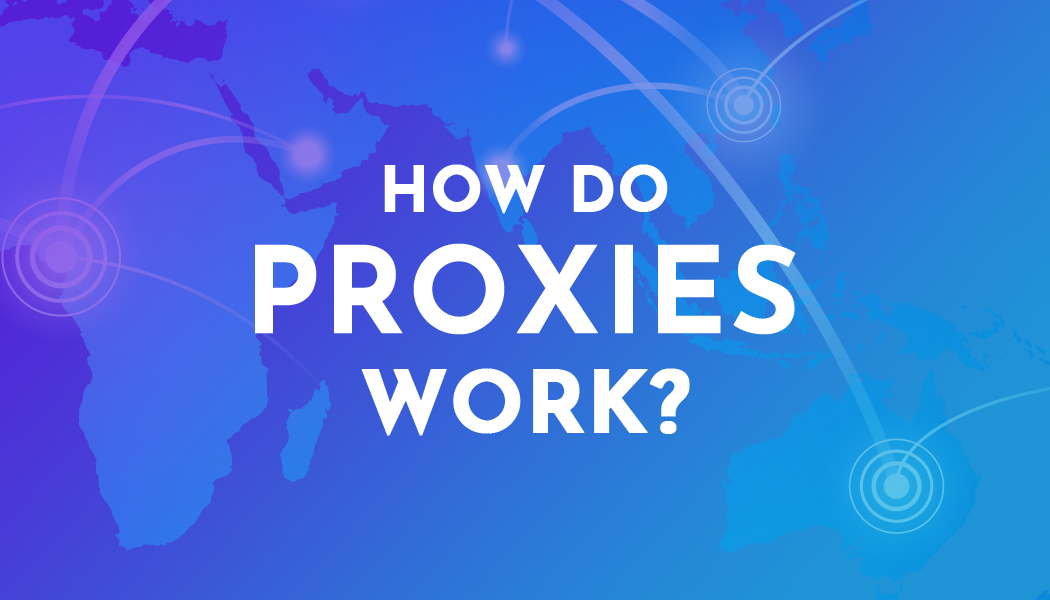How Do Proxies Work?
In general, most online devices fall into two simple categories - clients or servers. Your smartphone, tablet, laptop, or PC has a browser that you use to surf the web through a browser. This browser is a client. It contacts servers with your requests for information. Whenever you visit a website, your browser sends a request to that particular website's server.
These servers receive requests and send back the data you requested. Every website is hosted on one or more of these servers that deliver the content as requested by the visitors. This back and forth communication is called traffic.
If you're not using a proxy, your device communicates with the servers directly. Every server you send requests to can see your device and communicate with it. In other words, the IP address you're using is visible to everyone. So what can you do if you want to keep it private?
What Do Proxy Servers Do?
Simply put, the purpose of a proxy server is to act as an intermediary between clients or entire networks and the servers. It's basically another computer with its own IP address that's connected to your device and the internet. Instead of going straight to the destination, all your traffic goes to the proxy, which then forwards it on your behalf to the rest of the internet. When you get a reply, it goes to the proxy first and then back to your device.
The purpose of a proxy server is to conceal your IP address, so the websites, apps, and services you use online don't know where your traffic originally comes from. If you're using a proxy in a different location, you can make the internet think you're in a different part of the world. For example, if you're on vacation in Europe and want to watch the latest episode of your favorite show that's only available in the United States, a USA proxy will help you do that.
As your gateway to the internet, a proxy can do quite a few useful things for home and enterprise users. Here are the most common scenarios where a proxy server can help:
Increased security
Using a proxy server at home or work means all your traffic looks like it's coming from the same IP. This is particularly useful for company networks as it keeps the whole infrastructure anonymized and protected. A proxy is a fantastic first line of defense against hackers. If someone is trying to target a specific device on a network with a proxy, they have no way of finding it.
Content filtering
Since they control all outgoing and incoming connections, proxies can be used as firewalls. They make incredible content filters and can easily block inappropriate traffic requests and delivery. Businesses can use proxies to limit the employees' access to specific websites from the company network. By blocking social media and sites like Reddit or YouTube, employees become more productive and efficient.
Unrestricted surfing
Just as they can restrict access, proxies can help with accessing content you otherwise wouldn't be able to get to. Many governments and businesses limit or block access to specific websites for different reasons. By using a proxy in a different country, users can get around these restrictions. Companies can use proxies for web scraping, market research, and ad verification. Home users can get better deals on different goods, from flight tickets to streaming services.
Are There Any Downsides?
There are a lot of free proxy services out there. While they may seem tempting, free proxies are hardly a good idea. Most of them lack any security measures. Some even state they'll gather your data in exchange for offering their services. Since you have no idea who's behind a free proxy, this is a huge security risk, so make sure you read the fine print.
Free proxies aren't known for their flawless performance and stability either. Sudden disconnects and unreliable service are fairly common. On top of that, they're open to everyone. That means you'll probably be sharing them with an unknown number of other users. Finally, their features are limited to basic functionality most of the time, so they probably won't work if you have a specific usage scenario in mind.
Choose Your Proxies Wisely
The only reliable way to prevent all these issues is to pick a reliable proxy service provider. Your sensitive data, both personal and corporate, is too valuable to gamble with. Make sure you pick a proxy you can trust, and that's versatile enough for your specific needs.




